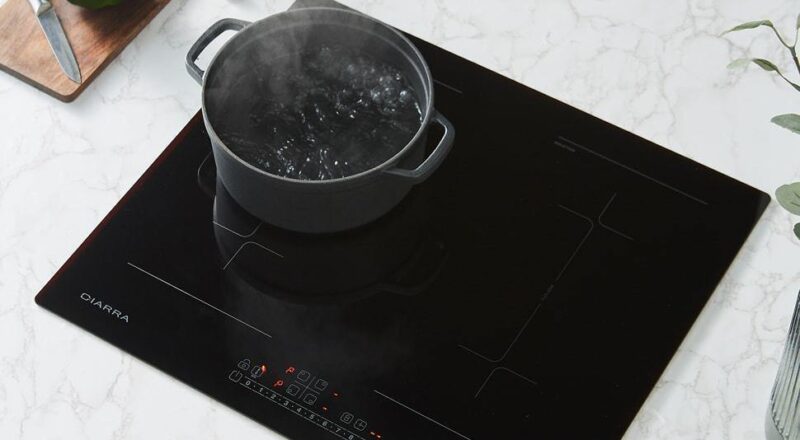When it comes to choosing the right cookware for your kitchen, the debate between cast iron vs electric skillet often arises. Both types of cookware offer unique advantages and cater to different cooking styles. In this article, we will delve into the benefits, drawbacks, and versatility of both cast iron and electric skillets, helping you make an informed decision for your culinary endeavors.

Understanding Cast Iron Cookware
Cast iron cookware has been a staple in kitchens for centuries. Known for its durability and heat retention, cast iron is ideal for searing, frying, and baking. It is a versatile tool that can withstand high temperatures, making it suitable for stovetop and oven use.
Benefits of Cast Iron
One of the most significant advantages of cast iron is its ability to retain heat. This feature makes it perfect for cooking dishes that require consistent temperatures. Furthermore, with proper seasoning, cast iron skillets develop a natural non-stick surface, enhancing their cooking performance over time.
Drawbacks of Cast Iron
Despite its benefits, cast iron can be heavy and requires regular maintenance to prevent rust and maintain its non-stick properties. Additionally, it may not be suitable for all stovetops, such as glass or induction, without proper adaptations. However, you can learn more about using cast iron on induction cooktops.
Exploring Electric Skillets
Electric skillets have gained popularity for their convenience and portability. These skillets come with their own heating element, allowing for precise temperature control and versatility in cooking.
Benefits of Electric Skillets
One of the biggest advantages of electric skillets is their ability to maintain a consistent temperature. This makes them ideal for tasks like frying and simmering. Additionally, they are easy to clean and often feature a non-stick surface, reducing the need for extra oil.
Drawbacks of Electric Skillets
While electric skillets offer convenience, they may not reach the high temperatures needed for certain cooking techniques, like searing meat. They also rely on electricity, which may be a limitation in areas with unreliable power supply.
Cooking Versatility: Cast Iron vs Electric Skillet
When comparing cast iron vs electric skillet in terms of versatility, cast iron stands out for its ability to transition from stovetop to oven. This makes it ideal for a variety of cooking methods, including baking, roasting, and frying.
On the other hand, electric skillets excel in tasks that require consistent heat and temperature control, such as deep-frying and simmering.
Maintenance and Care
Maintaining Cast Iron
Proper maintenance of cast iron involves regular seasoning to prevent rust and maintain its non-stick surface. After each use, cleaning with hot water and a stiff brush is recommended. Avoid using soap, as it can strip away the seasoning.
Caring for Electric Skillets
Electric skillets are generally easier to care for. Most models come with non-stick surfaces that can be wiped clean with a damp cloth. However, it’s essential to avoid submerging the skillet in water, as this can damage the electrical components.
Cost Considerations
When considering the cost of cast iron vs electric skillet, cast iron skillets are typically more affordable and offer a longer lifespan, making them a cost-effective option for many. In contrast, electric skillets can be pricier due to their built-in technology and features.
Environmental Impact
From an environmental perspective, cast iron has a lower impact as it lasts for generations and is recyclable. Electric skillets, while convenient, may contribute to electronic waste over time.
Conclusion: Which Should You Choose?
The decision between cast iron vs electric skillet ultimately depends on your cooking needs and preferences. For those who value versatility and durability, cast iron is an excellent choice. However, if convenience and precise temperature control are more important to you, an electric skillet may be the better option.

FAQs
1. Can I use cast iron on an induction cooktop?
Yes, you can use cast iron on an induction cooktop. However, it’s essential to ensure that the bottom of the skillet is smooth to avoid scratching the surface. For more information, check out vintage cast iron care tips.
2. Is it possible to bake in an electric skillet?
Yes, it is possible to bake in an electric skillet by using the skillet’s temperature control to maintain the necessary baking temperature.
3. How do I prevent rust on my cast iron skillet?
To prevent rust, ensure your cast iron skillet is properly seasoned and store it in a dry place. Additionally, avoid soaking it in water for extended periods.
For more insights into caring for your cookware, visit Induction Cooking.
This article contains affiliate links. We may earn a commission at no extra cost to you.

